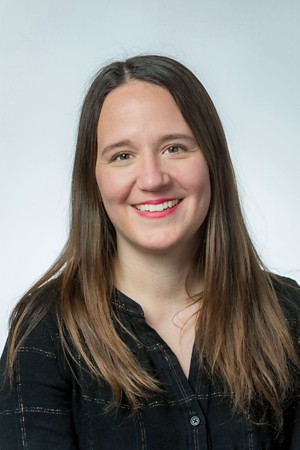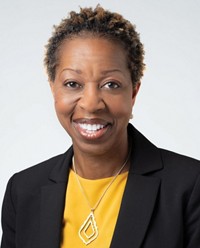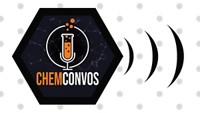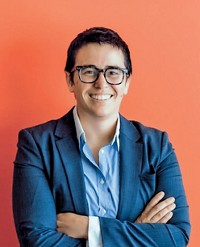×
CEN's 2022 Trailblazers
Tehshik P. Yoon wields light to open new possibilities for organic synthesis
Kelly N. Chacón characterizes enzymes that break down toxic metals
Barbara Belmont is devoted to nurturing the next generation of scientists
Charlie Wand uses simulations to study molecules' behavior
Nancy Scott Burke Williams has unraveled platinum's penchant for making and breaking carbon bonds
Jennifer Petter wants to interfere with RNA to discover new drug targets
Andre Isaacs inspires future chemists on social media and on campus
Alison Wendlandt One on one with Bec Roldan
Raul Navarro One on one with Grace Wang
Polly Arnold explores the chemistry of rare earths and radioactive elements
Carolyn L Ladd One on one with Kirstin S. Bode
Song Lin One on one with Alby J. Joseph
Nicholas Ball One on one with Ali McKnight
Carolyn Bertozzi One on one with Pauline Navals
Melissa Gish One on one with Matthew A. Wiebe
Benny C. Chan is reshaping the structures of chemistry curricula and thermoelectric materials
Jason S. Tedrow adapts new technologies to scale up drug manufacturing
David Smith builds self-assembling nanogels for regenerative medicine
C&EN's 2021 Trailblazers Celebrating Black Chemists and Chemical Engineers
C&EN's 2020 Trailblazers Celebrating badass Women Entrepreneurs in Chemistry
Historical Profiles
Contributors
Advertisement
Grab your lab coat. Let's get started
Welcome!
Welcome!
Create an account below to get 6 C&EN articles per month, receive newsletters and more - all free.
It seems this is your first time logging in online. Please enter the following information to continue.
As an ACS member you automatically get access to this site. All we need is few more details to create your reading experience.
Not you? Sign in with a different account.
Not you? Sign in with a different account.
ERROR 1
ERROR 1
ERROR 2
ERROR 2
ERROR 2
ERROR 2
ERROR 2
Password and Confirm password must match.
If you have an ACS member number, please enter it here so we can link this account to your membership. (optional)
ERROR 2
ACS values your privacy. By submitting your information, you are gaining access to C&EN and subscribing to our weekly newsletter. We use the information you provide to make your reading experience better, and we will never sell your data to third party members.
Physical Chemistry
Movers And Shakers
One on one with Melissa Gish
Graduate student Matthew A. Wiebe talks with this physical chemist about finding community at a national laboratory
by Matthew A. Wiebe, special to C&EN
April 8, 2022
| A version of this story appeared in
Volume 100, Issue 12
As a staff scientist at the National Renewable Energy Laboratory (NREL), Melissa Gish uses ultrafast spectroscopy to study the fundamental properties of charge- and energy-transfer processes to improve renewable energy technologies. Gish also helps build community support systems at NREL—for example, she cofounded the Full Spectrum Network, an employee resource group for LGBTQ+ people. Matthew A. Wiebe interviewed Gish about her work and career path and then sought advice for the future. This interview has been edited for length and clarity.

Credit: Werner R. Slocum
Vitals
Melissa Gish
Hometown: Rockville Centre, New York
Education: BS, University of Southern California, 2011; PhD, University of North Carolina at Chapel Hill, 2018
Current position: Research scientist, National Renewable Energy Laboratory
LGBTQ+ identity: Queer cis woman
Role model: Annie Greenaway, a fellow research scientist at NREL and chair of the Full Spectrum Network employee resource group, is my role model because she constantly works to create spaces in science that are accessible for everyone while doing groundbreaking work in renewable energy.
Recent fun project: My New Year’s resolution is to improve my dumpling-making skills, and my first venture was pierogi!
Matthew A. Wiebe: What’s a research project you’re on at NREL that excites you?
Melissa Gish: I’ve started working with organic lanthanide complexes, which is pretty new to me. I’m learning a lot of things about f orbitals that I haven’t really had to think about before. My experience in the past is transition metals and totally organic molecules. I’m still learning brand-new things and just using my expertise in the techniques to apply them to different systems, which is exciting and new.
MAW: For sure! I’ve always been interested in f-block elements, so I can see how fulfilling that curiosity would be exciting. How did you end up studying ultrafast spectroscopy?
MG: It was kind of an accident. Going into grad school, I knew that I wanted to do experimental physical chemistry, which led me to [John] Papanikolas’s group at the University of North Carolina at Chapel Hill. I would go to the group meetings, and I would be really excited and engaged in discussing ultrafast microscopy. I was drawn immediately to the renewable energy side and developed my expertise in ultrafast lasers. Also, in my graduate research I learned how to build all different types of optical setups and developed my expertise through really being engaged in that type of fundamental renewable energy research. That engagement is what kept me working in renewable energy and led me to apply for a postdoc at NREL.
At my desk at NREL, I have a Pride flag and all sorts of rainbow-type things. I just try to make it seem like there’s at least a safe space for someone to go to.
MAW: Can you think of a specific obstacle you overcame on this journey to becoming this awesome researcher?
MG: Yeah, in my first year I was working with an instrument that had a misaligned single crystal. So I was pushed into the lab, and they were like, “First year, you can go fix this alignment.” It took me, I think, 2 or 3 weeks to get only kind of back to it [realignment of the crystal]. I ended up having to ask a postdoc for help. But I built a new one in my second or third year that I could align in 15 min, compared to a 2- or 3-week time window. Yeah, that seems triumphant. Even I would say that’s quite the accomplishment.
MAW: Definitely! I think all scientists want to make things as efficient as possible. You’ve lived in several places for your studies and work; where did you feel most at home?
MG: Hmm, that’s a good question. I would say professionally, I feel most at home where I currently am at NREL. It’s been a really supportive environment. I have a lot of mentors who advocate for me and try to make sure that I have everything I need to be successful. I moved in 2018, so I had 2 years before the pandemic to get to know Colorado. It’s the furthest inland I’ve ever lived. I’m not used to mountain terrain. I’d never been skiing before I moved here. So it’s sort of like trying to learn all those new things and trying to fit in. In terms of my personal life in Colorado, being sort of in Denver, where it’s kind of on the smaller side but still a big city, has been nice.
MAW: Yeah, I’ve landed in Victoria for now, where it’s a nice in-between too. Can you tell me about the Full Spectrum Network at NREL and your involvement in it?
MG: Full Spectrum was cofounded by myself; a motivated grad student, Kate Doubleday; and several others when we were looking for an LGBTQ+ community at NREL. The goal of Full Spectrum is to provide that community for LGBTQ+ NRELiens [employees of NREL] and try to educate and be a resource for people. One of my ideas was to celebrate Pride in some way. That first year, we had an art installation, and we did a bake sale where we raised money for a local LGBTQ+ charity. In January 2020, we were planning to march in the parade, got everything ready for that, and then the pandemic hit. So the in-person stuff was canceled, and we had to make it a virtual event. But we were able to have NREL march in its first (virtual) Pride parade. That’s something I’m really proud of that I was able to lead. We did it again last year. This year, we’re hoping to march in the parade in person, so that’s exciting.
MAW: It’s always nice to build a sense of community in any sort of work space. I really appreciate what you’re doing for your fellow NRELiens. How has your identity as an LGBTQ+ chemist impacted you as an energy research scientist?
MG: Yeah, so this is a funny story. I kind of didn’t realize that I was queer until I joined Full Spectrum. Like, I’ve always sought out queer spaces, which I now realize is not a thing that straight people do. But I’ve always been around cis gay men and not a lot of queer women. So Full Spectrum, at the time that we started, it was a lot of queer women getting together and trying to get things done. Being in that space made me realize that I was bisexual, and I’m still working out the label. So at my desk at NREL, I have a Pride flag and all sorts of rainbow-type things. I just try to make it seem like there’s at least a safe space for someone to go to. Or at least they can see it when they walk by my desk and know that someone else is there for them and not feel so alone.

Credit: University of Winnipeg
Matthew A. Wiebe is a PhD candidate studying main-group chemistry with Ian Manners at the University of Victoria. He is passionate about cooking, pinball, and hiking the many beautiful spots on Vancouver Island.
Vitals
Matthew A. Wiebe
Hometown: Selkirk, Manitoba
Education: BSc, University of Winnipeg, 2017; MSc, York University, 2019
Current position: PhD candidate, inorganic chemistry, University of Victoria, Ian Manners’s lab
LGBTQ+ identity: Gay cis man
First job: Bingo card checker for bingo night at the local community center
Recent fun project: I’ve recently taken interest in playing pinball. I don’t have any high scores on any of the machines around town yet, but I am getting better every week!
MAW: Totally. I think just providing that space or just that comfort has value. I don’t think it’s uncommon for scientists to discover themselves later in life. Last question, from someone looking forward to the next step: What in your life has changed from being a graduate student to being a professional research scientist?
MG: I would say, as time goes on, you really start to trust yourself and trust your instincts. I think, in a PhD, you’re learning to trust that you know what you’re talking about and realizing what areas you could learn to grow. Transitioning to a postdoc, then to a staff scientist, you’re sort of just increasing that trust in yourself and knowing that you were chosen for a reason, and you are the expert in your topic. There are other experts, of course, but you are one of them. So it’s definitely a journey of, I guess, self-love.
Chemical & Engineering News
ISSN 0009-2347
Copyright © 2024 American Chemical Society





Join the conversation
Contact the reporter
Submit a Letter to the Editor for publication
Engage with us on Twitter